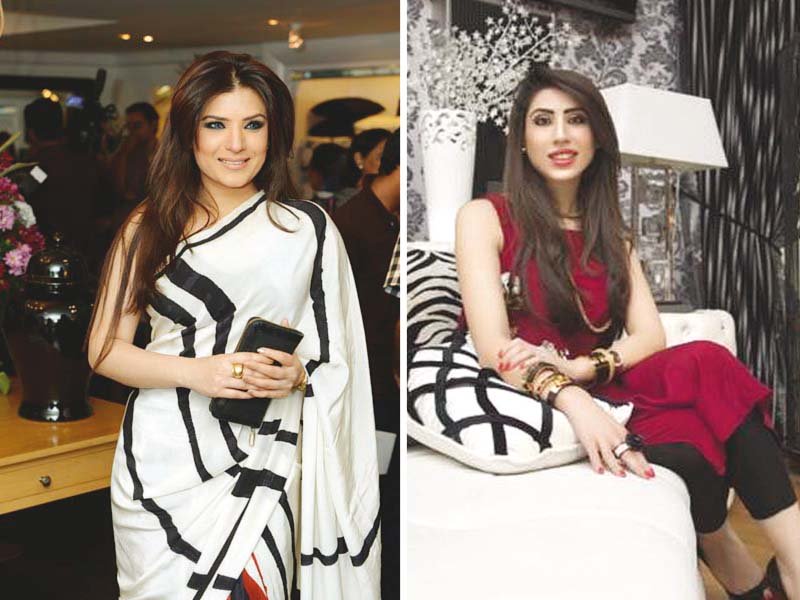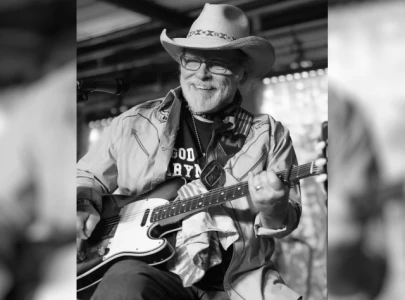
Things that convey status have been in constant flux. Where a strand of pearls was the crowning glory of the fashion scene in the 1920s, a mink coat was the ne plus ultra of the 1950s’ matron. Since the 1990s, what many have hailed as the defining item of the fashion and luxury industry is the It bag. For celebutantes and working women au courant with fashion fads, the status bag has been the ultimate object of desire and a power-dressing staple. As ladies clad in designer lawn carrying matching luxury bags becomes a frequent sight, we speak to public figures to explore whether handbags are a symbol of style or status.

For Resham, the It bag is a gateway to the It crowd, with her priciest buy being an $8,000-worth Hermès Birkin. “I’m a slave to my luxury handbags. They give me access to socialise in high society and I feel as if I’m given a warmer welcome at a dinner party [when carrying one],” says the actor. “If you step out of a Mercedes, you will be given a Mercedes Salam, if you step out of a Corolla, you will be given a Corolla Salam … So, if you carry a Chanel bag, you will be given a Chanel Salam,” she colloquially adds.
Although many women are big on brands, there’s a considerable number who consider it as an epitome of style more than anything else. Former model Iffat Omer holds that, while a bag is an important accessory, it’s not a status symbol. “I do judge people from their choice of bags and shoes. But choice, not brand … I invest in bags from time to time but it doesn’t matter what brand they are. I have to fall in love with the design,” notes Iffat. “What really bothers me about women in Lahore is that they’ve no sense of [differentiating between a] day, work and an evening bag. Lahore is going through its worse phase in fashion sense,” she laments.

Iffat Omer, Atiqa Odho and Ayesha Omer
Actor-model Ayesha Omer follows a similar mantra. “Handbags are not a status symbol for me at all. I do, however, splurge on bags and shoes time-to-time,” she shares. “Bags are a necessary accessory. I don’t care much about expensive brands, which don’t serve the purpose. They’ve got to look hip and classy.”
MPA Punjab Hina Butt Hayat enjoys being surrounded by luxury items. “I carry handbags as a fashion statement. It’s not about social status … it’s about developing a sense of fashion. Designer handbags are the epitome of fashion,” she says. “Just like men flaunt their cars, women flaunt their handbags. Every girl wants to be the prettiest one in the room and carrying the latest YSL bag does help in getting everyone’s attention,” she further says. Hina feels handbags represent one’s social status as there’s no easier way to flaunt one’s wealth than with a $3000-worth arm. But she says one must have the eye for spotting the difference between a real and fake bag.

Atiqa Odho opts for national brands over international ones to promote the local industry. “I love my Jafferjees handbags. I’ve been buying them for 20 years and am still a loyal customer,” she shares. “I prefer to spend on a good-quality local brand rather than foreign brands, as we should enjoy and support the local industry.” She owns Jafferjees handbags that are vintage pieces, which she has maintained in her collection.

Vogue’s Plum Sykes once wrote, “An It bag is an It bag only if you’re unlikely to possess it.” While It bags may come and go, let people remember not just your good taste in bags but also your style.
Published in The Express Tribune, June 17th, 2015.
Like Life & Style on Facebook, follow @ETLifeandStyle on Twitter for the latest in fashion, gossip and entertainment.

1724238420-0/Untitled-design-(3)1724238420-0-165x106.webp)

1731678234-0/pete-(1)1731678234-0-165x106.webp)


1731671399-2/Express-Tribune-(12)1731671399-2-270x192.webp)
1731657220-1/Express-Tribune-(6)1731657220-1-270x192.webp)
1731654835-0/Express-Tribune-(5)1731654835-0-270x192.webp)








COMMENTS (2)
Comments are moderated and generally will be posted if they are on-topic and not abusive.
For more information, please see our Comments FAQ